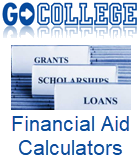Leadership Seminars – Nothing But a Sales Pitch?
To enhance one’s college admissions chances, there once existed a longstanding belief that the more activities a student could list on their application the better. However, in recent years that myth has been clearly debunked.
An unending list of activities is now seen as potentially backfiring, being viewed primarily as a list constructed so as to impress college admissions officers. Instead, most admissions officers see such lists as demonstrating that a student has no real idea what they are truly interested in.
Instead, today’s teaching point for students is to become deeply involved in one or two interests. Spending time on certain activities demonstrates a passion for the activity. Moreover, a resume built on a record of the student’s involvement in that activity will go a long way towards helping admissions officers learn who you are, a critical component in the decision process.
Leadership Component
 In addition to extensive involvement in one or two activities, the general sentiment is that developing a leadership role within these endeavors is a key component of rounding out that resume. That idea is accurate, a leadership position within one of these activities can be very helpful during the admission selection process.
In addition to extensive involvement in one or two activities, the general sentiment is that developing a leadership role within these endeavors is a key component of rounding out that resume. That idea is accurate, a leadership position within one of these activities can be very helpful during the admission selection process.
But in true American-selling fashion, the importance of leadership credentials has led to a whole new industry, one that is formed around the idea of leadership training.
Diana Jean Schemo recently took a look at this industry for the New York Times. Her piece, “Congratulations. You Are Nominated. It’s an Honor. (It’s a Sales Pitch.)” clearly articulates that students need to be aware of a number of come-ons that are nothing more than sales pitches.
And they represent sales pitches of the worst kind: playing on a student’s inner emotions and their goals of higher education.
They come in the form of a letter that appears to be awarding the student recognition. As the title of the article suggests, these letters begin with congratulations, assuring the student they have been selected based on their record of achievement.
Specifically, they invite students to leadership seminars, offering them a chance of a “lifetime advantage” and “valuable addition” to his/her resume. The letter uses words like “elite,” “distinguished,” and “select.”
The power of positive feedback makes the recipient feel “unique and gifted” but then plies on that new push: the one that says students need to develop their leadership skills if they want to assure themselves the best chance at admissions.
The seminars are real and many students decide to attend. And all-in-all, participants who attend report they are satisfied with the experience. Many also later recommend friends.
Unfortunately, according to Schemo, these seminars appear to be nothing more than a marketing scam. The number of students who attend at the prices set by these companies allow these for-profits to make significant sums of money off the students.
In most cases, parents pay $2,000 to $3,000 for students to attend these multi-day programs that turn out not to be as elite as they portray themselves to be.
For one particular conference cited by Schemo solicitations “begin filling mailboxes, virtual and real, as soon as children reach middle school, and continue coming through college. In a variety of settings, from Congress to Caribbean beaches, programs advertise their ability to cultivate leaders.”
 The selection offers such statements about those selected as “the nation’s most highly acclaimed students” and “most promising young leaders of tomorrow.”
The selection offers such statements about those selected as “the nation’s most highly acclaimed students” and “most promising young leaders of tomorrow.”
There’s the National Student Leadership Conference with a program fee of $1,600 to $3,000 and the LeadAmerica’s Congressional Student Leadership Conference “which also advertises college credit” for the experience. Schemo insists that most universities will not accept it.
There’s the People to People Ambassador Programs which has had to apologize to families for sending invitations to deceased children and in one instance, a deceased family pet.
But the poster child according to Schemo is the Congressional Youth Leadership Council, a program that boasts more than half a million student attendees. The company, once a nonprofit, now is purely a business despite the fact that it retains its web “”.org” label.
Grossing $56 million, they returned a mere pittance in scholarships and grants to students (less than one million). Parents basically cover the costs while needy students are encouraged to fundraise their way to the conference.
Not the Real Deal
Ultimately, no experts report evidence that these programs have a lasting effect on the students who attend though parents often insist that their child comes back with greater self-confidence.
Meanwhile, Envision, the sponsor of the aforementioned Congressional Youth Leadership Council had 28 unresolved complaints as of April 8; they ranged from advertising practices to contract disputes to program quality.
 But what students most need to understand is that such seminars are relatively meaningless as resume builders, at least in the eyes of college admissions officers. They insist “a leadership conference is no more or less likely to enhance college applications than, say, soccer camp.”
But what students most need to understand is that such seminars are relatively meaningless as resume builders, at least in the eyes of college admissions officers. They insist “a leadership conference is no more or less likely to enhance college applications than, say, soccer camp.”
Real honors, say college admissions folks, generally do not come with a price tag. Schemo refers to Susan Garrity Ardizzoni, director of undergraduate admissions at Tufts, who notes that some students invited to these sessions are clearly not of the caliber she would call leaders.
“For us,” she says, “activities or essays are most meaningful for students where there’s an established track record or interest.”
Students should keep these factors in mind as they consider shelling out two to three thousand dollars for such an experience. These seminars are not as selective as their sponsors lead students to believe.
Students might find these programs enjoyable – in fact, they well should at $2,000-3,000 a pop. But as for giving students additional resume material for admissions, it appears that this money certainly could be better spent.


The congressional youth leadership council is a parent trap. My daughter was nominated at least 12 times in the past 3-4 years. The first time we were both filled with pride. As a parent – my child is a genius, and as a child – I am unique and gifted. As an adult, after you are getting through initial high of being parent of prodigy, you do careful research and realize that it’s nothing more than expensive getaway for kids, that it might be fun to spend few days without parents, see Washington D.C., meet new friends, and even participate in seminars. But… nomination has nothing to do with my child’s abilities as a leader, his/her talents, achievement, dedication. It’s not selective, it’s widely inclusive because at the end percentage of parents willing to pay so much for 4-7 day camp is much smaller than amount of invitations. How to explain to your child that this nomination is a marketing material to make us pay, and perhaps it has nothing to do with his/her talents without hurting his inflated ego at the moment that he/she is unique leader and future president, ambassador, etc? Do we have to cringe, because as a responsible adult you understand that nomination is not real achievement, that accepting it will do nothing more for leadership skills and future resume than any summer soccer/basketball camp, and for this amount of money you can bring your child and his friends anywhere. As a neurotic parent you are doubting yourself , how can I break this self-esteem happy bubble for my normal, talented, and wonderful child? Therefore, it is genially designed parent trap, with so many levels of playing with your consciousness and pride, and guilt, that common sense and knowledge of direct marketing of all for-profit organization trying to give up. After 12 nominations, endless reminders of deadlines, mysterious extentions of deadlines, warnings of a once in a life time opportunity, you are done. Now you have friends who’s children are nominated and they are going through their high of being a parent of future president, you are trying to share your knowledge and research, saying that it might be a great trip but nothing more than overpriced tour without parents. Be careful! You are now an enemy number one. You undermining the recognition of achievement of other parent and other child. So you either have to lie, diminish yourself to ‘that’s awesome’ or lose friendship. Trapped again. Kudos to marketing team!
I didn’t think that business is going on inside the school. The power of positive feedback makes the recipient feel “unique and gifted” is definitely a sales pitch. Students and parents should realize that the key to profession success after college does not relay on any workshop or seminars. This can be a self motivation event but at some point students school performance is still the most important thing to build while at school.
Interesting discussion.
What do you make of the fact that the latest solicitation/nomination now comes with a cover letter from Amy Takayama-Perez, M.Ed., Dead of Admissions of George Mason University that facilitates a conference? It was mentioned that Envision EMI, LLC, the for-profit parent company is headquartered in Vienna, Virginia and near George Mason University. Curious for other thoughts.
Bill,
It tells me that someone is being compensated for the use of their name and position – nothing more. Unless of course, they are asserting that attendance will give you an ‘in’ at George Mason – which would dimish GM’s reputation significanly.
Quite frankly, there are much better ways for an ambitious student to improve and distinguish themselves – local volunteer work, internships in their field of study.
That being said, this is hardly the worst way a student can spend some of their summer. But shelling out thousands for a 4-7 day ‘feel good’ event is hardly an impressive achievement.